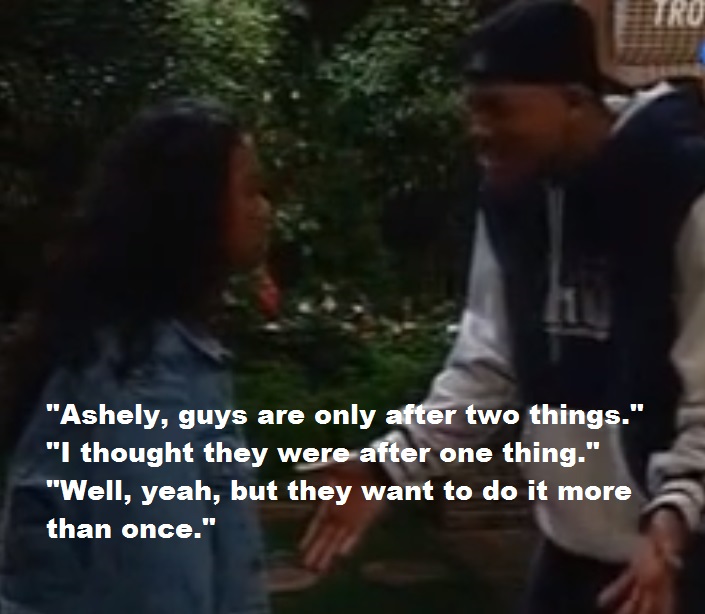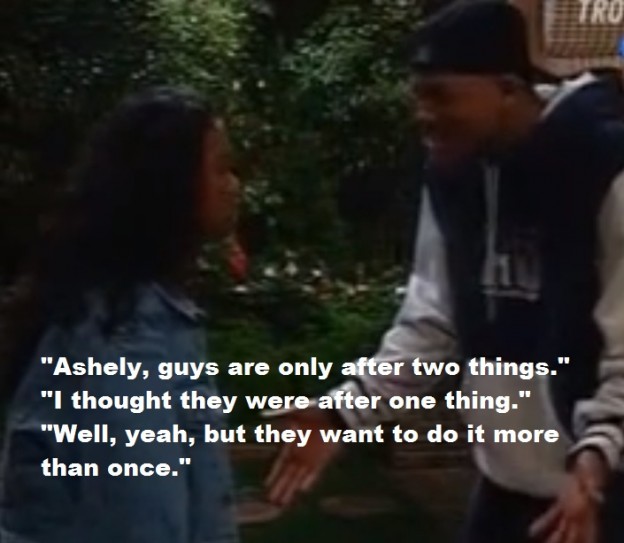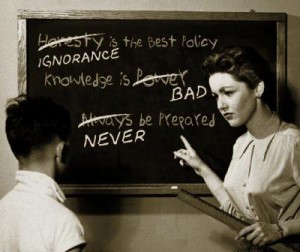Reflecting on their own experiences, authors Ams and Lara discuss ways to allieviate awkwardness when talking to sibilings about sex.
First of all, for anyone with a sibling, a cousin, a close friend who you wish you could speak more openly about sexual health and pleasure with, we’d like to make clear that this article isn’t restricted to only siblings. However, we will be focusing on our own sibling experiences of sex education and empowerment.
As people with siblings (Ams has a twin sister; Lara is a middle child) both authors speak from personal experience when we say that even though we talked with our siblings about sex, there were still those weird moments. Like climbing into bed with your sister one night and pulling her vibrator out from under you. Princess and the pea made incredibly uncomfortable in both the physical and mental sense. Or when you innocently ask your older sister what a blow job is and she directs you to talk to dad about that instead.
But all this shouldn’t deter siblings from talking about sex or sharing experiences and questions. There are ways to convert awkwardness into positive dialogue.
Why Siblings?
So why are we focusing on discussions between siblings in the first place? One of our readers wrote in that she wanted to be able to talk constructively with her 15 year old sister about sex but was not sure how to begin a discussion without making both her sister and herself embarrassed or sound judgmental.

In close relationships, particularly with people around the same age, learning from one another’s experiences and being reflective together of common issues, fears, and pleasures is sometimes much more enjoyable than the kinds of sexual education classes offered to young adults. Not only this but it includes a kind of comradery that you don’t often receive at school or often from parents who may be supportive but would rather not know too many details of their children’s sexual activity.
Furthermore, talking to siblings about safe sex practices and healthy relationships shows that you care. It’s also a way to pick up on risky behavior (“But my girlfriend said she can’t afford to get tested”).
Bonus* If you have a sibling who identifies with the opposite sex from you, speaking with them is a great way to learn more about the way gender pressures people to flirt and perform sex differently.
Respect Boundaries and Trust
Now, sibling relations are complicated and multifaceted. Shared family experience can forge strong bonds of understanding of which no other relationship can match. Alternatively, unhealthy circumstances and family politics may breed painful relations. Not every brother or sister establishes a framework of sharing and support. So if you are concerned for your sibling but do not have a sharing and trusting relationship with him or her, that’s OK. There are still ways to initiate sex talk without crossing comfort zones.
Lara can speak to this issue from her own upbringing. She and her younger sister (7 years difference) are not close in the sense of knowing each other’s secrets, social circles, or crushes. They were brought up in separate households by different guardians and went to different schools. Both were exposed to different attitudes towards sex. In some ways, they are more like strangers to each other. Despite their physical and emotional distance, there is still that unexplainable sisterly love, and being older, Lara felt a need to look out for her younger sister’s well-being.
She explains, “Our particular relationship has boundaries of trust which make it uncomfortable to discuss emotional aspects of sex and sexuality or discuss specific sexual activities in detail. Nonetheless I wanted to make sure that my 13 year old sister knew how to be sexually safe and how to access safety tools on her own. To me, the bare fundamentals of sex education are 1) Understanding consent and being self-aware of emotional risks 2) Knowing about your body and what sexual acts put you at risk of certain STIs and pregnancy 3) Knowing safer sex methods and how to access barriers and contraceptives, and 4) Knowing how to get tested for STIs.
“I knew I could not have an in depth conversation with my sister about all four points. But I could recommend resources and keep the door open for future conversations. So my approach was to be matter-of-fact. I didn’t feel that beating around the bush would alleviate any awkwardness. In fact, using vague phrases like “Have you done it with him?” can convey feelings of embarrassment or stigma around sex. So I made a point to use frank language.
Talking Point: Ask About Their Sex Education
“Luckily for me as a sexuality scholar I talk about sex A LOT, so I knew the opportunity would inevitably arrive. I did rehearse in my mind what I would say to my little sister because I think it’s better to be thoughtful and proactive rather than reactive. “One day over the phone I explained to her that I was writing an article about public school sex education. Then I asked her about the education she’s received and what she and her peers think about it. This opened the door to discuss the importance of knowing about your body and safer sex. Furthermore it allowed my sister the freedom to share because she was not pressured to necessarily state her opinions and questions, but was sharing under the guise of what other peers think and feel about sex. I was able to respond with statements like: ‘Oh, the teacher didn’t talk about oral sex or dry sex? That’s something I think is often overlooked in sex ed., but those acts do come with different risks and there are ways to protect yourself against those risks.’
“Throughout the conversation I carefully picked my words and consciously listened and validated what my sister was saying. In the end, I learned that she had a good grasp of what STIs were most prevalent and knew how to use condoms but never heard of sex dams. She was also curious about the diveristy of sexuality and I was able to offer her some really great online readings and videos to explore in her own privacy.
The point is, even if the relationship is not close or is limited by the degree of privacy each other can share, there are ways to work respectfully around those boundaries while offering advice and showing that you care. Another thing: sex talk does not have to be THE sex talk- a crucial, once-in- a-life event. In reality, people’s sex education is ongoing and transforms as circumstances and age call for it. Ams’ relationship with her twin sister illustrates this.
Be Open and Non-Judgmental
The other thing about sibling relationships (and human relations in general) is that they are forever changing as we grow older. It has taken many years for author Ams to have an open relationship of sexual disclosure with her fraternal twin sister.
“I was the first of the two of us to become sexually active. My sister asked me questions and was fairly non judgmental but my experience wasn’t going to be the same as hers. In many ways, our sex talks seemed pretty commonplace mirroring many of discussions I had with peers. Things became more complex in later years when from time to time one of us would call the other crying about some sort of ‘mistake’ we had made.
“For example, I found one of my high school journals the other day. What I had written about myself seemed horribly abusive. I had called myself a ‘whore’ for kissing a boy at a party when I was single, and made it out like no boy would ever want me again because of that. My sister had a similar incident a few years later. She told me she thought she had cheated on her boyfriend at the time. She gave me all the details but all that stayed in my mind was that she had cheated, and so she was at fault. I was terribly non supportive and I actually went out of my way to call my sister and apologize to her years later.
“What I should have realized then was that it is not up to me to make any moral accusations about anyone including myself, especially when those accusations are based off of a social system that hates women’s sexuality and punishes us for it. Worse though, my sister had been blackout intoxicated the night she ‘cheated’ and we both came to the conclusion that she had been sexually assaulted. In her time of need, I had dismissed her story- and I’ll always have to live with that.
“Now a day’s both my sister and I try our best to call one another on preemptive judgments. We also are very helpful with each others birth control choices, sexual safety and pursuit of pleasure. I actually ended up buying my own vibrator after uncomfortably sleeping half the night on my sister’s. Great investment. She taught me that safe casual sex is nothing to be ashamed of for womyn. I hope I’ve taught her something too.”
Not Limited to Sibling Relations
This conversation shouldn’t just be about siblings though- nor should sexual advice from a sibling necessarily replace information garnered from other sources. No one is perfect. People faulter. And in today’s system and world, creating a sex positive, pleasure-oriented education system is still very hard work. Myths, stereotypes and harmful lies (#exposeVACPCs is one example) are all around us cutting us off from safe, confident and guilt free sex. That’s why a healthy, open relationship with someone you trust is so crucial. Here’s our round-up for what to keep in mind and how to initiate sex talk with your sibling, cousin, friend or anyone you care about.
Sex Talk Summary
1) Be fact-based and frank. This is really helpful but might be difficult if you feel shy or embarassed to say words like “anal”. Your own discomfort will show and make the discussion awkward for everyone. Thus, interconnected with the matter-of-fact approach is to…
2) Check in with your own attitudes towards sexuality. Why might you feel weird about saying “vagina” with your sibling? Read Soraya Chemaly’s piece about how family attitudes towards sex are extremely influential. Obviously,we are partial to the “responsible sex is good” advice than the “scare them shitless” camp.
3) Be respectful and non-judgmental. Youth in particular are often condescended to and told that they are “too young and immature.” Don’t do this. Approaching sex talk in a fact-based manner will help but it’s important to be accepting and welcoming. That includes actively listening to what the person is saying and validating their feelings. Respect also includes being realistic about the extent of trust already established by your relationship. Even if your relationship does not allow for sharing private experiences there are still ways to bring up sex and safety while respecting personal boundaries.
4) Inform– Share outside sources like the ones we offer below. This will help put the pressure off you and allow your sibling (or other) to explore the information privately and possibly take up the discussion with you later about specifics.
5) Be self-reflective. This allows for more nuanced understanding of each other and how one fits within greater social structures and norms. Use your own experiences to breach a subject, or even a book or television show. Or, try asking about their sex education and what their peers think about the curriculum. Reciprocate by sharing what your sex ed was like and what you found helpful or wish you were taught in retrospect.
6) Write a letter or text message. This might be a good option to open the conversation if, say, you are worried about a romantic relationship the person is in but are still unsure when to approach her or him about it.
7) Always remember that just like you, your sibling deserves, happiness, pleasure, safety and freedom to be a sexual being- help create that safe space for them to grow in.
Sex Talk Resources
There are loads of awesome resources out there! Here are some important places to start and follow.
Laci Green Sex+. Armed with quirky cleverness and shameless rapport, Laci Green has been a major voice for youth against fears towards sexuality, abstinence-only sex education and slut/body-shaming. From challenging notions of virginity, to answering questions about foreskin, her YouTube channel is a trove of sex positve knowledge. A must see resource!
Scarleteen. A grassroots teen sex education site with indepth, comprehensive articles about all things sex and sexuality in a way that is relevant to people’s diversity. It runs a bully-free Q&A message board and an SMS service where teens can annonomously ask questions and get help from qualitfied sex educators- all for free! In addition to all their advice articles, the site provides legal information about personal rights, access to health care, how to talk to physicians, and also help teens find local, in-person health services, LGBTQ, shelters and other youth-focused services.
Come As You Are. The only cooperatively run sex shop in the world is in Toronto! They run in-store sex workshops. Their site offers free printable pamphletes on lubes, condom, bdsm, bondage, caning- you name it, they have it! They also provide guides to everything from swingers clubs to emergency numbers, shelters, and sexual health resources for sex and disability, HIV/AIDS, reproductive assistance, STI testing, sex workers’ support, LGBTQ communities and more. A great place to start is their sex info guide on how to choose and use sex toys.
Advocates for Youth. If you are interested social change from a public policy perspective, this is an organization that can overwhelm you with openly available research publications and development sector jargon. They run a giganitic online hub of sex education initiatives including youth activist movers and shakers, AmplifyYourVoice.org. Their site keeps tabs on what government officials are- and are not- doing to make sexuality education in the US positive, effective and non-discriminatory.
It’s Pronounced Metrosexual. Where complex, Judith Butler-like concepts of sex, sexuality and gender are broken down into simple, easy to read articles and infographics. Watch the site founder’s entertaining TedTalk on the complexities of gender.
Queering Sexed w/ Planned Parenthood Toronto. This project is aiming to build a sexual health resource specifically for LGBTQ youth who are systematically disadvantaged by public school sex education and medical practitioners at large. Watch online videos, read infographics, and get in touch with them for social support.
The STD Project. A website aimed at dismantling STDs stigma by raising awareness, listening to people’s stories, and increasing access to information. A really great resource for everyone to make more conscientious decisions.
The Body.com. This is not teen or youth specific but it is a trusted resource by medical experts in the field of HIV/AIDS. From social support to activism, this site is a good starting point for everyone to know about HIV/AIDS-related issues. It offers up to date information about testing, transmission, treatment, serodiscordant couples (to name a few topics) which unforunately not many people (young and old) are knowledgeable. This site also publishes critical articles addressing the pertetuation of stigma.
Our Bodies Our Selves. One of the most important girls’ and women’s health sites in North America. This site promotes evidence-based information on female reproductive health and addresses the intersection of social, economic and political conditions that impact access and quality of health care.
Answer. One of the only online sex education resources that addresses issues specific to boys and men. Though it’s not all free, they do offer webseminars, online workshops and publish a youth-run sexuality magazine, Sex, Etc.
Do you have any advice or resources to add to this? How do you feel about talking to siblings about sexual health?





